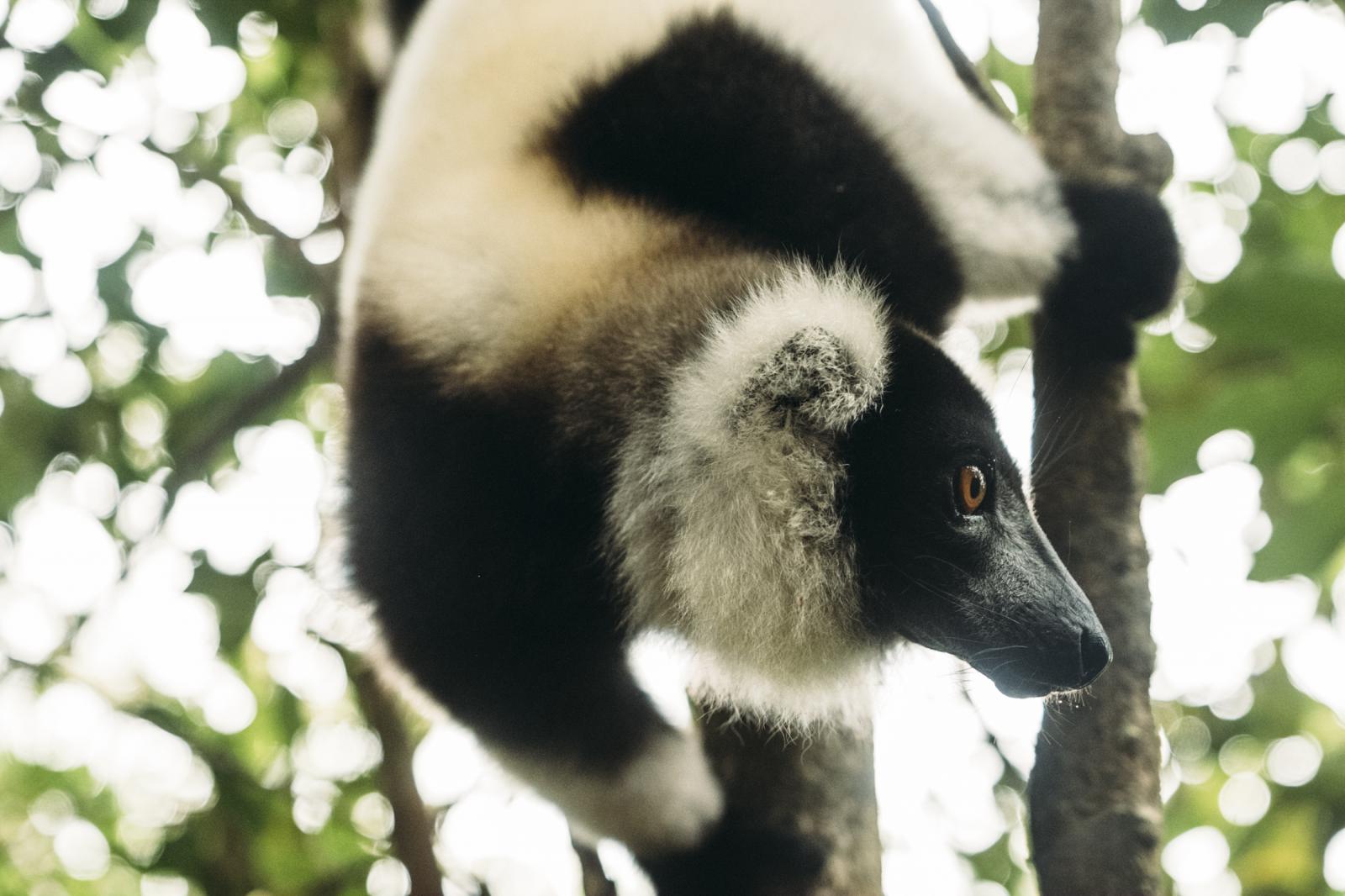News
Imagining a Future Without Wildlife in Madagascar
chris golden
Aug 31, 2017
National Geographic Explorer Dr. Christopher Golden and his team of Harvard Planetary Health Scholars spent six weeks in Madagascar to better understand the human health impacts of environmental change. This series of stories will document this journey across Madagascar through the personal experiences of these students.
By Camille DeSisto, Harvard University undergraduate and Planetary Health Undergraduate Scholar
Trekking through the forest in Madagascar, the wildlife that most quickly captures the curiosity of many are the lemurs. Their primate charisma comes in part from strikingly beautiful features that intrigue the viewer. Why are these lemurs important to people?
Exclusively endemic to Madagascar, lemurs fulfill a vital ecological niche. Yet many Malagasy hunt lemurs, birds, and bats, among other animals. In our stay adjacent to the Makira Natural Park, we witnessed people hunting and eating wild birds and tenrecs caught within the folds of the forest. However, wildlife is becoming much more scarce, and hunters lamented the dearth of many types of animals in the forest. In this same community, we lived in houses made of plant fibers and materials, ate food cooked on firewood, slept on mats of woven reeds, and shaded ourselves from the harsh sun with the canopy of trees. Plants, just like animals, are critically important, and in fact inseparable, from Malagasy life.
It is difficult to reconcile the need for food with the long-term need for wildlife conservation. It is clear that hunting at current rates drives certain wildlife species’ populations down to unsustainable sizes. Habitat destruction and fragmentation add to the problem. Not only is this harmful in terms of destabilizing food security, it also creates a cascade of harmful environmental impacts.
Gnawing on a tiny fruit, the black and white ruffed lemur we saw was blissfully unaware of the importance of her actions. Lemurs are essential for the functional diversity of plants, and in a country where the vast majority of flora and fauna are endemic, preserving this diversity is critical for sustained environmental and human well-being. Many lemurs, birds, and bats are not just bushmeat for humans, but critical seed dispersers, meaning that the size of their populations affects a multitude of plants species. With higher populations comes more seed dispersal and greater seedling establishment. This reshapes forest community structure and floral biodiversity, potentially improving human access to plant resources. In addition to seed dispersal, bats and other wildlife contribute to floral diversity through pollination. Without dispersal and pollination, the forest would be unrecognizable.
The alteration of floral composition from the loss of these animals will impact human health by limiting access to food, medicinal plants, and other forest products.
As I peer around the robust buttress roots of a nearby tree, I am struck by the strength of the forest. How can a place so strong and lively be simultaneously so vulnerable? The answer lies within the complex relationships that create a web of dependency between humans, animals, and plants. These connections are both beautiful and dangerous. But vulnerability is not fragility, and the resiliency of the forest, just like the resiliency of the Malagasy people, is inspiring.
We must understand and care for the invaluable animal-plant interactions that breathe life into the forest and all of its inhabitants. Human life depends on natural resources that these connections provide, resources that are threatened with unsustainable levels of extraction. Stewardship of the land is essential for the sustained health of humanity; to ignore the vital role that humans play in shaping the environment is to sabotage people and all the natural things to which we are connected.
6,587

